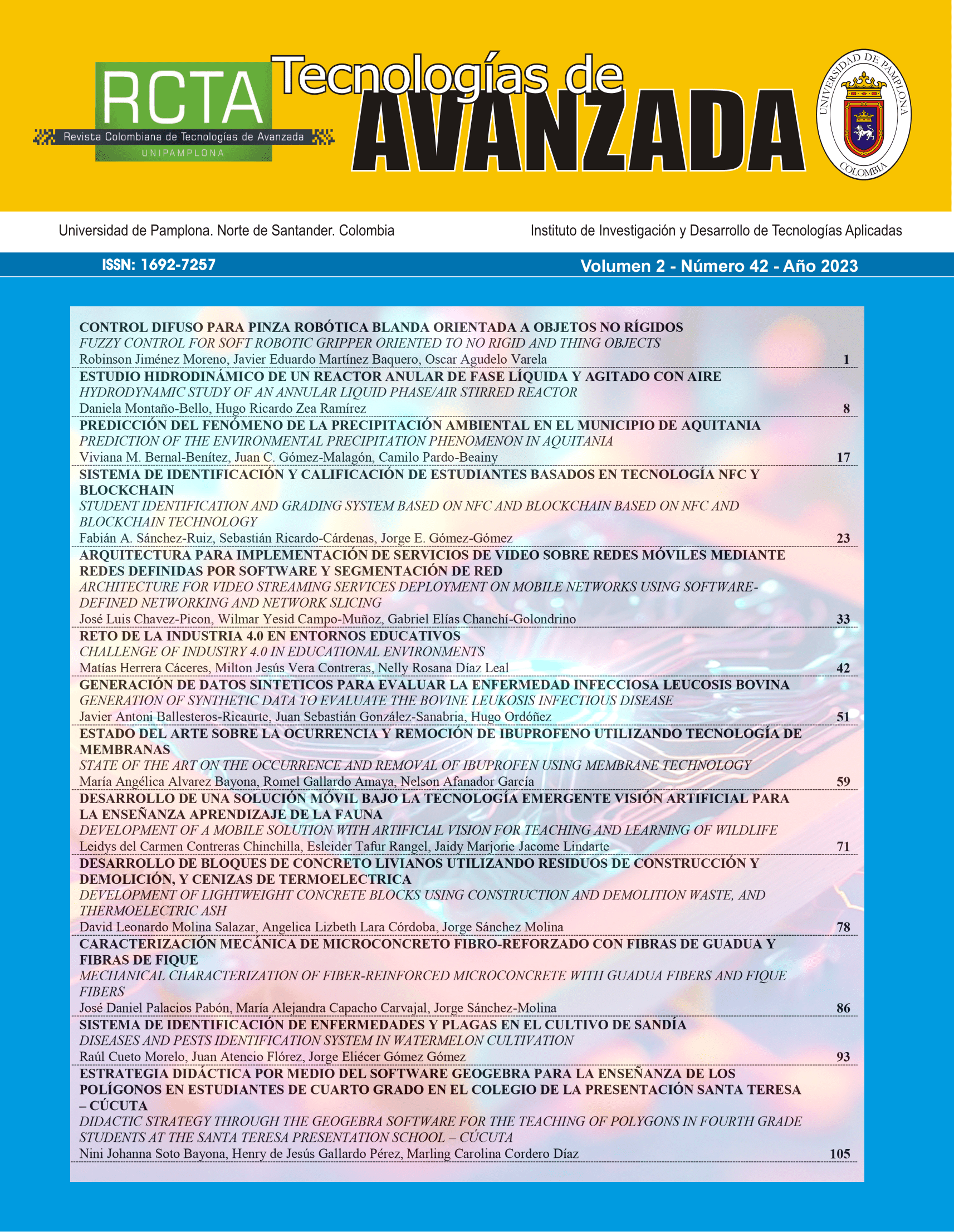Reto de la industria 4.0 en entornos educativos
DOI:
https://doi.org/10.24054/rcta.v2i42.2652Palabras clave:
Laboratorio de Fabricación, Innovación, Diseño Curricular, Emprendedor, Transformación DigitalResumen
El artículo presenta un proyecto exitoso de Innovación Curricular basado en la Metodología General Ajustada (MGA) y aprobado por la OCAD del Sistema Nacional de Regalías del Gobierno de Colombia. La propuesta central es un Laboratorio de Fabricación Digital (FabLab) que busca fomentar el autoaprendizaje, el aprendizaje colaborativo y por descubrimiento, impulsando así la innovación y el emprendimiento a través de la cooperación entre la Universidad, el sector productivo y los emprendedores. Esto crea un flujo positivo de ciencia, ingeniería y transformación digital de la sociedad. Las principales lecciones aprendidas incluyen la importancia del liderazgo, el trabajo en equipo, la confianza institucional, el trabajo virtual, la promoción del acceso abierto al conocimiento y la colaboración entre entidades educativas y gubernamentales.
Descargas
Citas
Benbasat, I., & Zmud, R. W. (1999). Empirical Research in Information Systems: The Practice Of Relevance. MIS Quarterly, 23(1), 3–16.
Blikstein, P., Kabayadondo, Z., Martin, A., & Fields, D. (2017). An Assessment Instrument of Technological Literacies in Makerspaces and FabLabs. Journal of Engineering Education, 106(1), 149–175. https://doi.org/10.1002/jee.20156
Blikstein, Paulo. (2013). Digital Fabrication and ‘Making’ in Education: The Democratization of Invention.
Bronfenbrenner, U. (1977). Toward an experimental ecology of human development. American Psychologist, 32(7), 513–531. https://doi.org/10.1037/0003-066X.32.7.513
Condiciones específicas para el mecanismo de participación 2: propuestas de proyectos para la creación y el fortalecimiento de centros e institutos de I+D, Colciencias (2019). https://minciencias.gov.co/convocatorias/plan-bienal-convocatorias-fctei/convocatoria-del-sistema-general-regalias-fondo-ctei-0
CONPES 3975 Política Nacional de Transformación Digital e Inteligencia Artificial, CONPES 3975 (2019). https://www.mintic.gov.co/portal/604/articles-107147_recurso_1.pdf
Documento guía del módulo de capacitación en teoría de proyectos, DNP (2016). https://colaboracion.dnp.gov.co/CDT/MGA/Manual%20Conceptual/20.06.2016%20Documento%20Base%20Modulo%20Teoria%20de%20Proyectos.pdf
Ettekal, A., & Mahoney, J. (2017). Ecological Systems Theory (pp. 239–241). https://doi.org/10.4135/9781483385198.n94
FabFoundation. (2020). FabLabs: A platform for connecting Fab Labs and their users from around the world. FabLabs.Io - The Fab Lab Network. https://www.fablabs.io/
Hevner, A. R., March, S. T., & Park, J. (2004). Design Science in Information Systems Research. MIS Quarterly, 28(1), 75–105.
Irwin, A. (2019). Re-making ‘quality’ within the social sciences: The debate over rigour and relevance in the modern business school. Sociological Review, 67(1), 194–209. https://doi.org/10.1177/0038026118782403
I-Wah, P. (2011). Home-school Cooperation in the Changing Context - An Ecological Approach. Asia-Pacific Education Researcher, 20, 1–16.
Oztemel, E., & Gursev, S. (2020). Literature review of Industry 4.0 and related technologies. Journal of Intelligent Manufacturing, 31(1), 127–182. https://doi.org/10.1007/s10845-018-1433-8
Straub, D. W., & Ang, S. (2011). Rigor and Relevance in IS Research: Redefining the Debate and a Call for Future Research - Editor’s Comments. MIS Quarterly, 35(1), iii–xi.
Sukhbaatar, B., & Tarkó, K. (2018). Contexts of School and Herder Family Communication in Mongolia: A Conceptual Framework. 118, 157–174. https://doi.org/10.17670/MPed.2018.2.157
Wieringa, R. J. (2014). Design science methodology: For information systems and software engineering. https://doi.org/10.1007/978-3-662-43839-8
Descargas
Publicado
Cómo citar
Número
Sección
Licencia
Derechos de autor 2023 Matías Herrera Cáceres, Milton Jesús Vera Contreras, Nelly Rosana Díaz Leal

Esta obra está bajo una licencia internacional Creative Commons Atribución-NoComercial 4.0.















